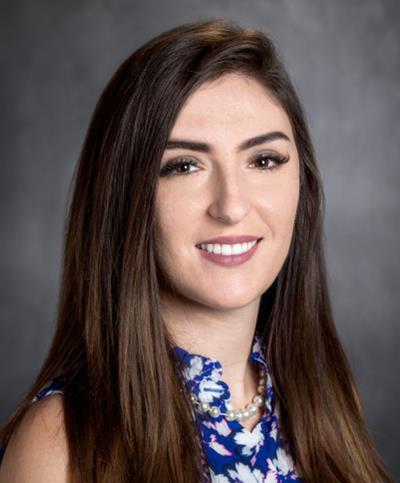January 15, 2020 -- Continuing our feature series this January, ScienceBoard is happy to highlight the work of laboratory scientists, including Lisa Maria Mustachio, PhD, a postdoctoral fellow at MD Anderson Cancer Center.
Lisa is one of the many researchers working on innovative solutions to combat cancer through scientific discovery. As a postdoctoral fellow in the department of epigenetics and molecular carcinogenesis at MD Anderson in Houston, she is investigating potential new therapies for lung cancer patients.
Tell us how you got involved in your current position or laboratory.

I completed my PhD in molecular medicine at Dartmouth, focusing on post-translational modifications and protein degradation pathways in lung cancer. I decided to further my training in an epigenetics laboratory at MD Anderson Cancer Center as a postdoctoral fellow where I would learn about new topics and techniques, analyzing how histone modifications and epigenetic mechanisms contribute to lung cancer development and progression.
What questions are you asking with your lab work? Or what answers will your experiments help you get?
My research asks whether specific proteins within the Spt-Ada-Gcn5 acetyltransferase (SAGA) transcriptional coactivator complex contribute to lung oncogenesis and whether these proteins can be targeted in lung cancer for a therapeutic response.
What will your work contribute to the scientific community and the public at large?
My work will help link epigenetic mechanisms to cancer development and progression, as well as reveal potential new targets that can be used to combat cancer. The ultimate goal is to identify new targetable pathways that can be used in therapy development to help treat cancer patients.
What types of experiments and tests do you typically perform in the lab?
In the lab, I mainly work with human lung cancer cell lines that I genetically manipulate using lentiviruses. I then analyze their RNA (qRT-PCR) and protein (western blots) expression levels, as well as perform function assays to determine whether repressing a specific protein within the SAGA complex inhibits the growth of cancer cells.
What future directions do you hope to pursue in your research career?
In the future, I hope to continue academic research to eventually have my own laboratory focusing on novel therapy development against lung cancer, specifically therapies targeting KRAS mutant lung cancers.
Do you have any publications or materials that readers can reference if they want to learn more about your work?
My published work can be found on PubMed or can be found through ResearchGate.
If you are interested in learning more about Lisa or her work, she can be reached at lmustachio@mdanderson.org.
Copyright © 2020 scienceboard.net







